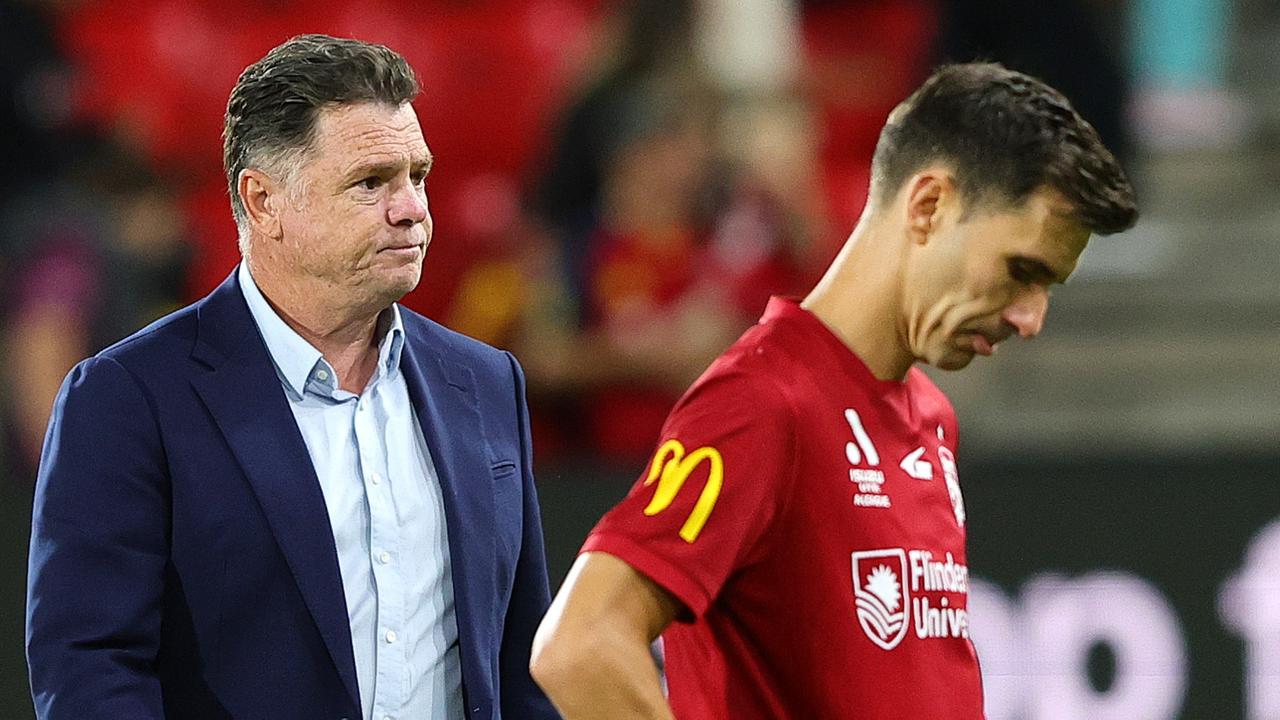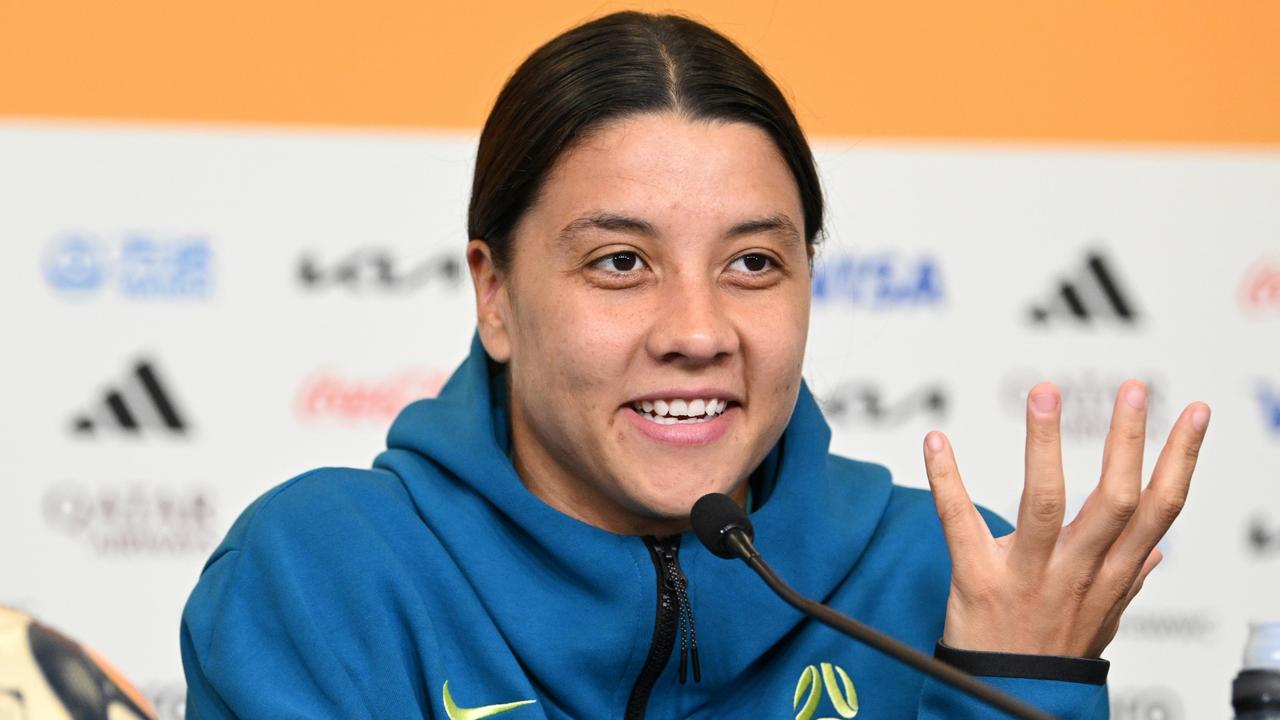Analysis: Spain and Canada’s woes show how women’s football is evolving unevenly
The FIFA Women‘s World Cup will be a landmark event in Australia for multiple reasons, but recent events in Spain and Canada expose an unequal playing field. ADAM PEACOCK unpacks the turmoil.
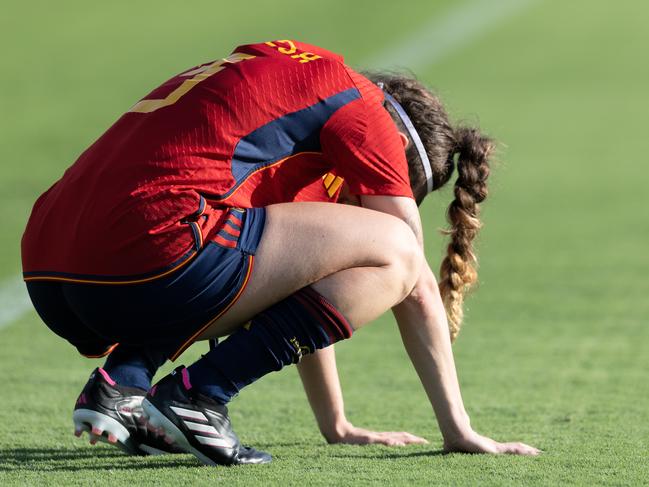
Football
Don't miss out on the headlines from Football. Followed categories will be added to My News.
Imagine, for one horrible second, that 15 of the best and most experienced Matildas decided to air some grievances. And to retaliate, Football Australia bans them.
Kerr, Catley, Gorry, Foord, Carpenter, Simon, et al. All gone.
This is effectively what is happening right now to Spain’s women’s team.
The timing could hardly be worse.
Spain, a side that was developing into a powerhouse and genuine World Cup contenders, is in Australia to tune up for the global showpiece that begins in Sydney on July 20.
But the man at the centre of the players’ discontent, Jorge Vilda, is in charge of a younger, inexperienced and understrength group.
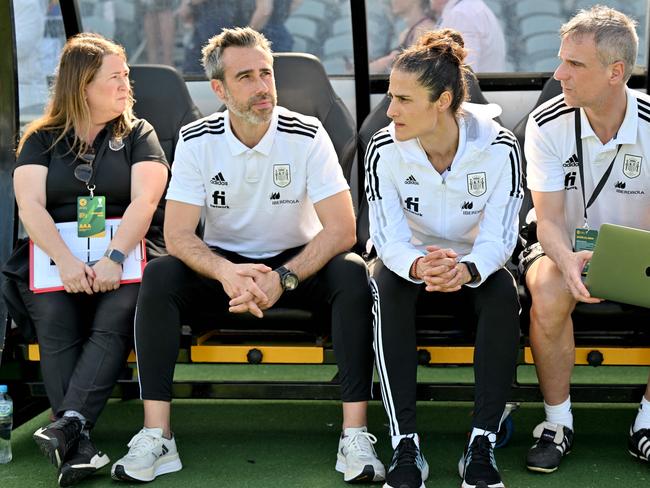
Spain, who tackle Australia at CommBank Stadium on Sunday, is not the only big hitter in women’s football going through tumultuous times.
Canada’s players are in a major dispute with their own federation. They threatened to strike before a big game against the USA this week. The federation threatened to sue if the match didn’t go ahead.
The team played but donned shirts with a clear message during the anthems: “ENOUGH IS ENOUGH”.
Neither issue is about to go away in a hurry.
******
Spain and Canada’s problems are completely different, but it all relates to the growth of the women’s game.
Some 20 years ago, female players were treated as second-class citizens compared to men.
The Matildas went through pay-dispute turmoil in 2015. Megan Rapinoe somehow found herself rumbling with Donald Trump prior to a historic equal pay settlement in 2022.
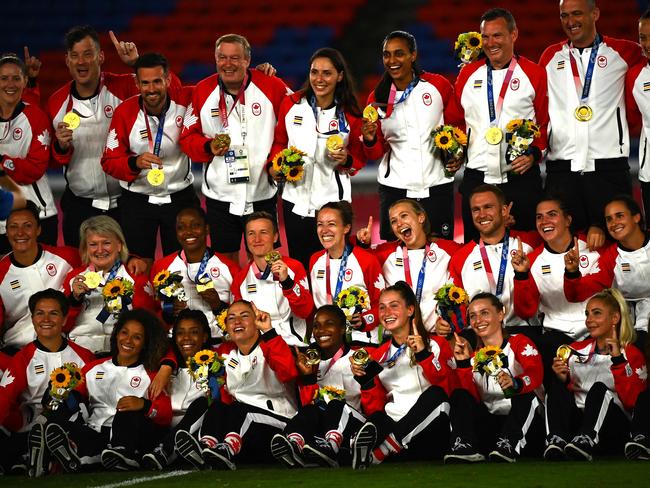
Times change at different pace around the world, but the global momentum of women’s football is now impossible to miss.
The 2023 Women’s World Cup, costing approximately $400 million to put on, is expected to be the first FIFA showpiece for females to break even.
Notably it is the first time ever that broadcast rights and commercial opportunities have been split from the men’s World Cup. At last count, FIFA had sold TV rights in every territory apart from a couple of European nations.FIFA president Gianni Infantino last year took a shot at broadcasters for trying to get the event on the cheap.
Gradually, the rights have been sold. Britain’s TV rights, the last major deal yet to be done, are expected to be finalised next week. FIFA reported the 2019 World Cup was watched by 1.12 billion people, and that ceiling is expected to be smashed again.
Who they will be watching is another matter.
*****
Spanish coach Vilda’s answer to the opening question at a press conference in Sydney on Wednesday told much about his mindset.
When asked if we’ll see the best Spain compete at the World Cup, he deflected, before labelling the question “disrespectful”.
Vilda might want to get used to those questions. Replicating Lieutenant Frank Drebin’s “nothing to see” act from Naked Gun won’t work in front of the world’s football media later this year.
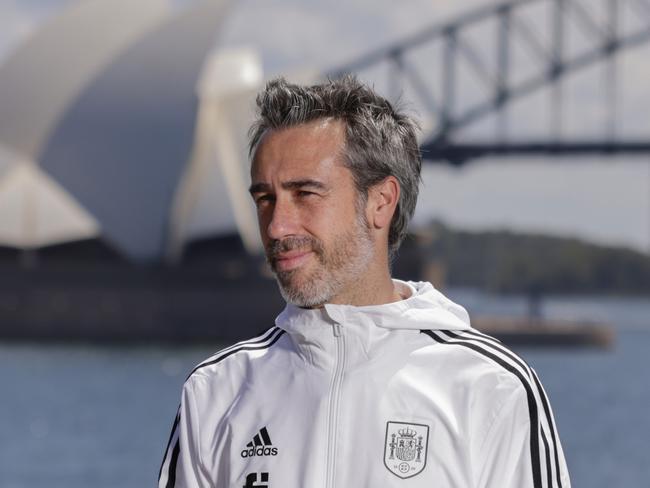
Spain’s best 15 haven’t been in the national team since losing a thrilling quarter-final to eventual champions England at the 2022 European Championship, an event which doubled its TV viewership from the previous edition.
A month later, Spain’s best 15 players sent individual emails to the federation. They asked to air grievances with the national team set up, and Vilda’s methods.
The players denied asking for his resignation, but essentially, Vilda had lost the dressing room. The players wanted clarity.
Spain’s football federation told the players to get lost, noting it will “not allow the players to question the continuity of the national coach and his coaching staff”.
“Because making those decisions does not fall within their competences,“ read a terse statement.
Nothing has changed since. Spain is in Australia with a second-string side full of promising players, but not proven talents. The exiled 15 include half of the all-conquering Barcelona side that has lost one Spanish league game in four seasons.
Alexia Putellas, the superstar who has twice edged Sam Kerr to win the Ballon d’Or world player of the year, is part of the group but has been out with a serious knee injury since last July.
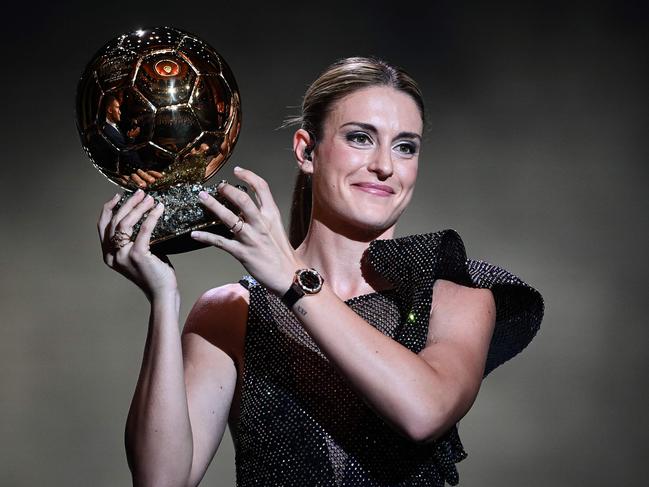
Staggeringly, there’s a big chance the game’s greatest could miss a World Cup given her federation’s belligerent mood.
Football administration has a different meaning in Spain. Presidential elections at clubs are followed with as much fervour as the political versions. The words of those in power carry as much weight as the manager and star players. For now, Vilda has the total backing of the Spanish federation’s president Luis Rubiales.
The love between coach and president is mutual, with Vilda gushing over his federation’s commitment to prepare the team in the best way possible.
“I am sure that if the tournament was held on Mars or Jupiter, the federation would take us on a rocket,” Vilda said last week.
The standoff places extra importance on every match Spain play, friendly or otherwise. Vilda’s position was strengthened last year with a win over USA, minus the ‘missing 15’.
Victory over Australia tomorrow will further empower the position of both Vilda and Rubiales.
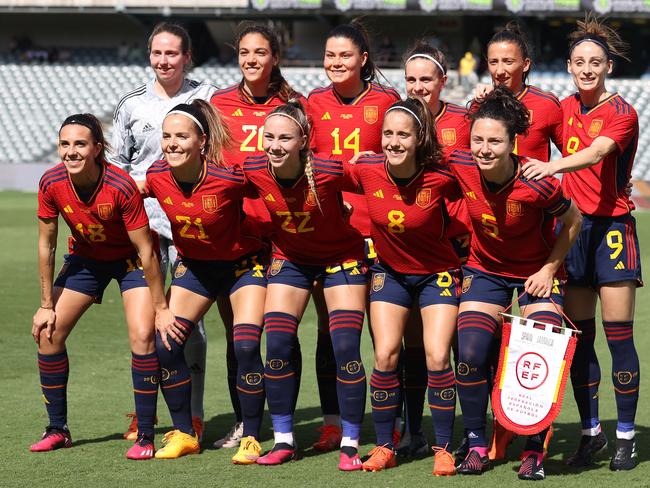
*****
Canada’s issues were there for the world to see on Friday (AEDT). Collective bargaining agreement talks, having dragged on last year, intensified sharply.
It capped a dramatic week for the Olympic gold medallists, who are drawn in the Matildas’ World Cup group and expected to go deep into the tournament.
Canada’s men’s team was looked after for their World Cup in Qatar, where they failed to make it out of the group stages. The women’s side argue their funding has been cut right down to youth level, and the size of their support staff is less than half of what the men have.
“It’s pretty disgusting that we’re having to ask just to be treated equally,” Canada forward Janine Beckie said before the USA game.
“We won the damn Olympic Games and we’re about to go to the World Cup with a team who could win.”
So ahead of the blockbuster game in Florida, the team threatened strike action. Canada Soccer threatened to sue in response, arguing industrial action wasn’t legal with a time frame of less than 17 days notice.
The players trained with tops inside out. Legendary striker Christine Sinclair, moments after her 320th cap in the US game, doubled down on the sentiment. “We’re not going to back down until things change. Any little chance we get to get the message across we’re going to take.”
Canada Soccer, like the Spanish federation, is copping it in the court of public opinion. Canada’s government joined the pile on, inviting Canada Soccer executives to testify, or, explain themselves, at a committee hearing in early March.
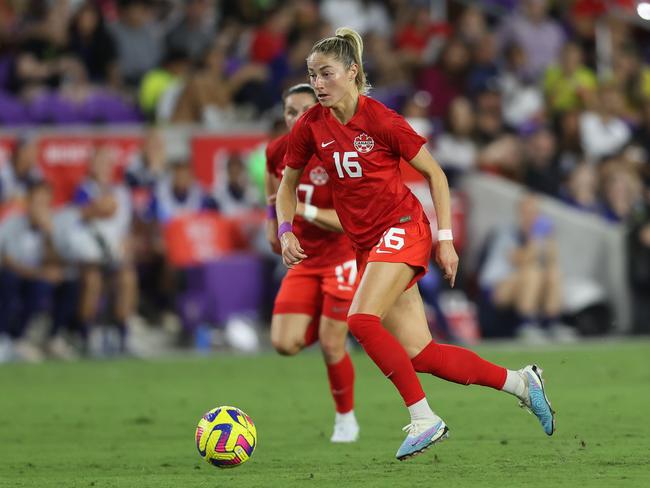
*****
Viewed through a micro lens, Spain and Canada’s issues are a huge worry. The World Cup is about the best of the best playing.
Players like Sinclair, aiming for a sixth World Cup, and Putellas bring huge amounts of quality and significance to the event.
Yet through a macro lens, it is all part of the process of women’s sport hurtling toward full-time professionalism.
Bumps will continue to obstruct that path. A patriarchal view from leadership, or a negligence to see what an equal playing field looks like in a world that has never been more interested in women’s sport.
In 2015, the Matildas cancelled two friendlies against the USA in the middle of a two-month strike. Football Australia eventually relented.
By 2019, the Matildas had an equal share of the revenue pot from national teams, splitting it with the Socceroos regardless of where it came from.
One former Matilda watching the game against Czechia in Gosford on Thursday marvelled, “look at this”.
“They have everything they need to be successful, and all these girls watching on. It’s so good. So good.”
Evolution. Revolution. Whatever you want to call it, change will continue at a rate no coach or federation can control.
Originally published as Analysis: Spain and Canada’s woes show how women’s football is evolving unevenly


